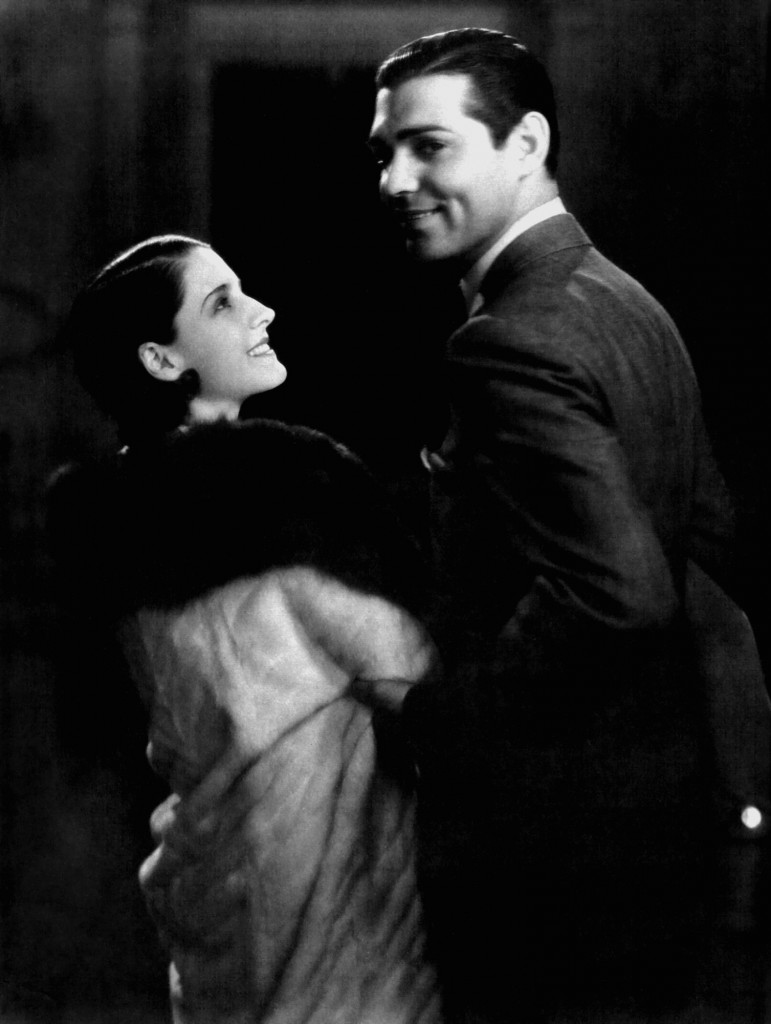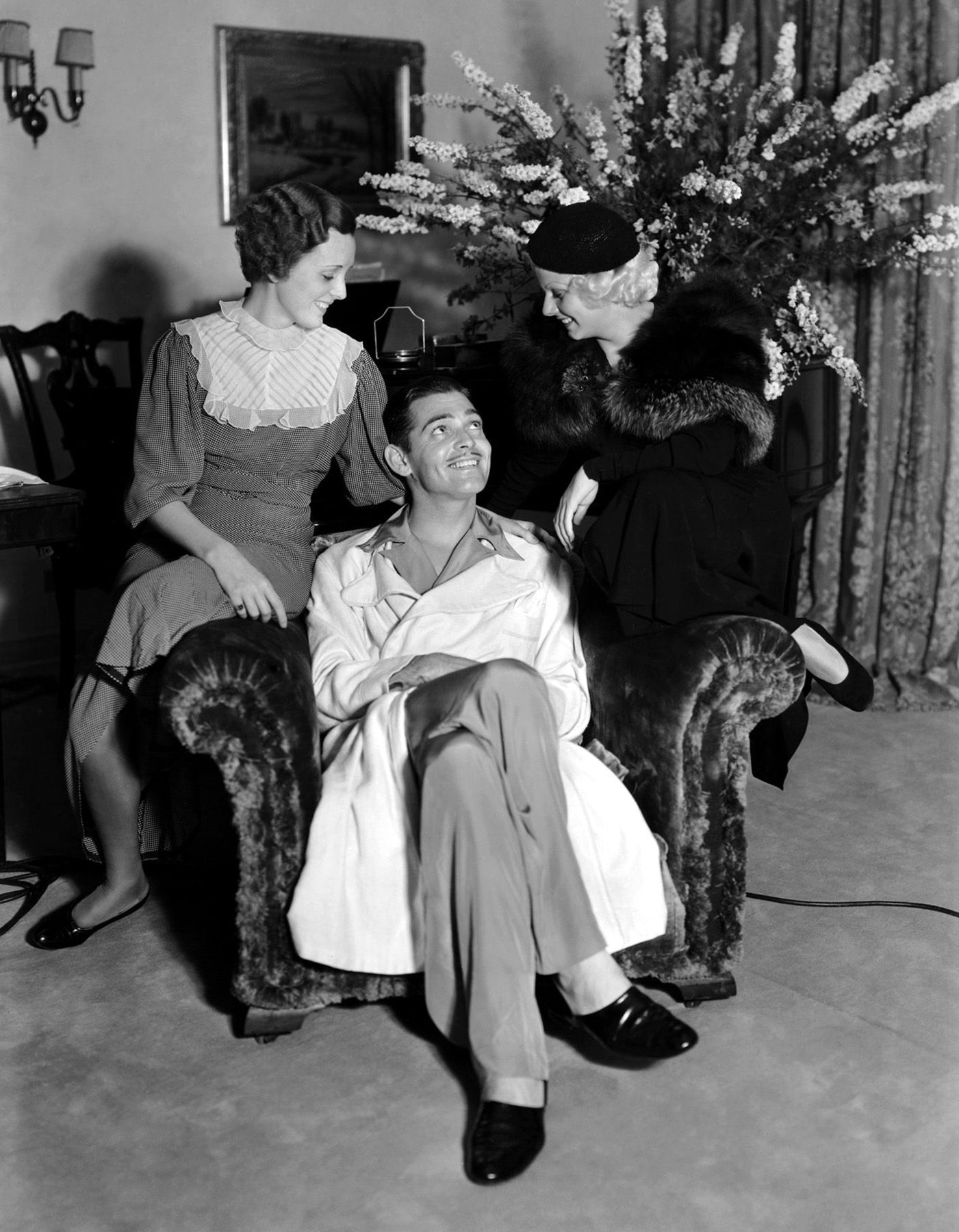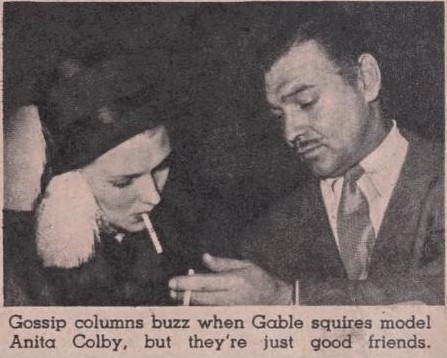{New Article} 1931: Why Women Go Crazy About Clark Gable
This article was published in Photoplay magazine the month after this one I posted this weekend. The second feature article on Clark Gable, this one is a bit dull as it is just speculation on why women suddenly are nuts about him.
Clark Gable is the male sensation of the screen today because in every role he has played the part of a man who fears neither Jack Dempsey nor Peggy Joyce.
He is a caveman with a club in one hand and a book of poetry in the other.
Here is no tender lover, strumming sweet love songs; no smitten cavalier throwing his mantle over a puddle to save the tender tootsies of his fair one; no ga-ga strippling crying life is o’er lest the sweet object of his tender affections will not permit him to dedicate his life, liberty and fortune to her eternal whimsies.
In one short year he has made the most phenomenal and dazzling progress. He may never achieve the heights of romantic idolatry of Valentino, nor the year-in and year-out box office assurance of Chaplin or Fairbanks; but there is no one man on the screen today whose personality so intrigues the feminine audience.
A strange phenomenon of feminine psychology, the almost instantaneous success of this new type of lover. Note that I did not use the word “hero.” For Clark Gable’s popularity does not rest upon the foundation of noble deeds, tender passion, nor self-sacrifice. As a lover he begins with indifference, demands utter submission, and ends with either complete and uncompromising domination or defeat. And there is no defeat in him save death.
Ace Wilfong, in “Free Soul,” was the apex of a series of such characterizations. Jan (Norma Shearer), refined and fragile, glories in her infatuation for the man to whose will she must and did yield. The character of the noble self-sacrificing, and honorable lover, played by Leslie Howard, a much more artistic and versatile actor, paled into insignificance in his final victory.
Is it that the ladies and gentlemen of the audience have been fed up with too much super-human nobility, hearts of gold, and all that sort of thing in our motion picture actors?
It’s interesting how Clark was immediately pigeon-holed into playing the bad guy–the bad guy you wouldn’t mind going home with, anyway. It was a sign of the dramatic shift in motion pictures that really started with the talkies. The Depression was making audiences want real stories about real people. They tired of the flouncing, ruffled hero tackling fantasy villians in far away countries. Clark fit the bill. Can you imagine him wearing tights like Fairbanks? Think not. Love “He is a caveman with a club in one hand and a book of poetry in the other.”
The article goes on about why the author thinks women are crazy about Clark. Which is really the author’s opinion. I think this article would have been more interesting if it was indeed written by a woman, telling why women fall for Clark, instead of speculation by a man!
I do not want to spoil any illusions but I must tell you about the first time I ever saw Clark Gable off the screen. I was lunching in the Metro-Goldwyn-Mayer restaurant in Culver City when he came in.
A particularly effusive and beautiful blonde screen actress rushed up to him and introduced herself.
“Oh, Mr. Gable,” she gushed, “I think you are the finest actor on the screen.”
I have never seen a man more ill at ease. He looked around appealingly. He stood on one foot, then the other. I felt that under his rough, three-day beard (he was making retakes for “Susan Lenox”) he was blushing like a school boy.
“Thanks—ah—yes–thank you,” he stammered, “but I’m afraid there are a lot of them on this lot who know the tricks better than I do.”
“Oh, but Mr. Gable, everyone knows you are so wonderful—“
“Yes—thanks,” he said, “thanks—yes—thank you. I must be back on the set—yes—thank you.”
And the big tough-looking guy in the three-day beard rushed out of the restaurant and hid in his dressing room, lunching on a ham sandwich and a glass of milk.
That is funny and cute…and probably about true!
You can read the article in its entirety in The Article Archive.



